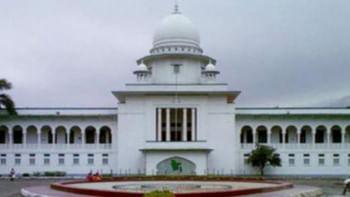Stop protecting the corrupt

We applaud the High Court for declaring illegal Section 41 (1) of the Public Service Act, 2018, a provision that required law enforcers to get prior approval from the government or relevant agencies if they wanted to detain government officials in criminal cases – a provision that should not have been formulated in the first place. The court, in its landmark judgment, observed that providing such protection to a particular section of the population was contradictory to articles 26, 27 and 31 of the constitution. Article 26 says that laws inconsistent with the fundamental rights are to be void, and articles 27 and 31 guarantee equality before the law and the right to protection of the law.
This provision of the law – as had been outlined by legal experts and civil society members when it was first proposed – contradicted the Anti-Corruption Commission (ACC) Act, curtailed the authority of the ACC, and in essence protected corrupt public officials. At a time when rampant corruption across all the sectors in Bangladesh has all but eroded the foundations of our public institutions, we need stricter laws that hold corrupt officials accountable, not provide them with impunity to carry out their illegal activities without so much as a slap on the wrist.
Corruption seems to have become a "way of life" for an overwhelming majority of our public officials, who increasingly use their political affiliation as a licence for abuse of power and pocketing of taxpayers' money. Despite media reports and research studies conducted by reputed national and international institutions, detailing corruption across every sector year after year, we don't see any initiative from the government to so much as investigate the allegations, much less hold the corrupt officials accountable. The ACC, unfortunately, is independent in paper only, with little visible success in catching corrupt officials high up in the command chain. Meanwhile, we see different manoeuvres at play to provide indemnity to public officials for their wrongdoings, which send a dangerous message: Swindle the public all you want, the government will still protect you!
Too many government officials have long forgotten their constitutional obligation to the people of Bangladesh. They have sacrificed all ethics to the altar of their own selfish interests. The government must wake up to the reality that such rampant, ruthless and unrepentant corruption is simply unsustainable in the long run, and that it is eating away at whatever economic and social progress the government has made over the last decade.
We welcome the High Court directive to treat all citizens of the country equally under the law, and hope it sends a strong message to the government to prioritise protection of the public from corrupt public officials – not vice versa.


 For all latest news, follow The Daily Star's Google News channel.
For all latest news, follow The Daily Star's Google News channel. 






Comments